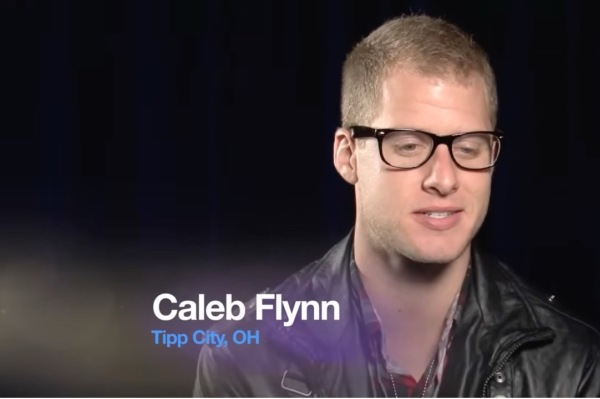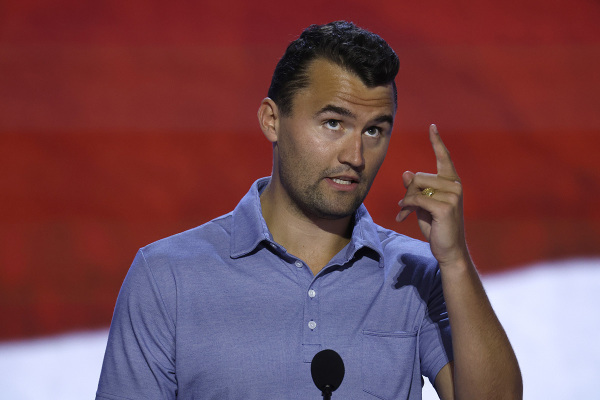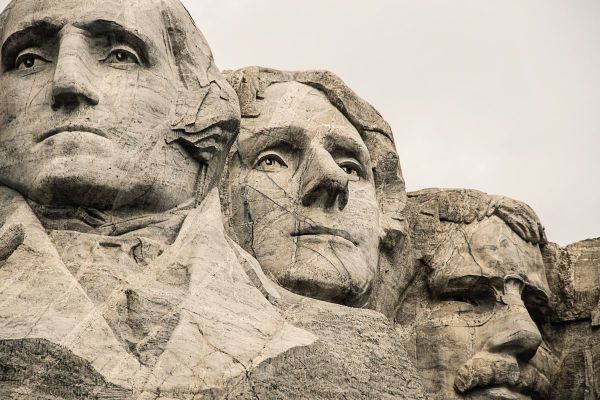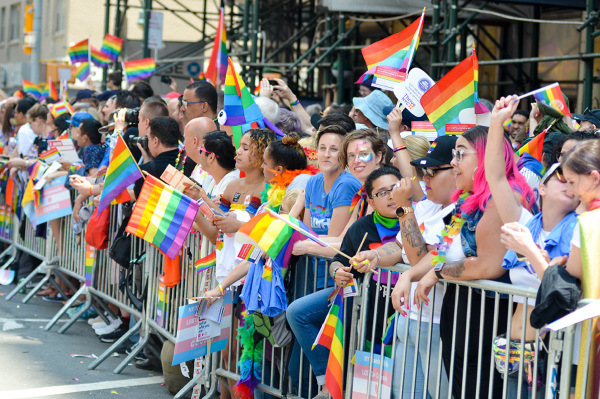Activists protest Nigerian president's speech at US Institute of Peace amid 'genocidal' violence
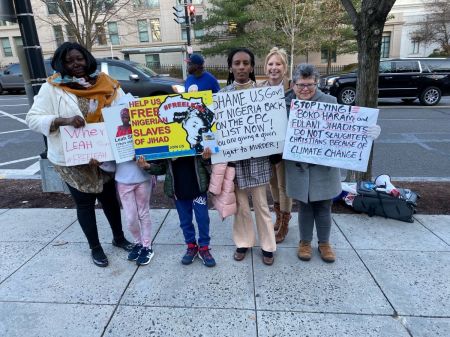
WASHINGTON — Religious freedom activists, including a woman who was once sentenced to death for apostasy in Sudan, demonstrated against what they say is genocidal violence taking place in Nigeria as the leader of the African nation spoke at an event Friday.
A small group of activists held a protest outside the U.S. Institute of Peace as Nigeria President Muhammadu Buhari delivered remarks at an event titled "A Conversation with Buhari."
Buhari's trip to Washington, which also included an appearance at the U.S.-Africa Leaders Summit hosted by the U.S. State Department, comes on the heels of a Dec. 7 Reuters report alleging that the Nigerian military has conducted a secret forced-abortion campaign in its fight against radical extremist groups since 2013.
Less than a week later, Reuters reported that the Nigerian government denied the allegations of wrongdoing.
Nigeria has received international attention as a hotbed of violence against Christians as thousands have been killed in recent years either at the hands of radical Islamic extremists in the northeast or radicalized herdsmen who attack predominantly Christian villages in the country's farming-rich Middle Belt states.
Christian rights advocates have warned for years that the violence in Nigeria has reached the standards for genocide and have accused the government of not doing enough to prevent killings and abductions of Christians. The Nigerian government has refuted such claims, arguing that religion is not a factor behind the violence.
Faith McDonnell, a longtime advocate for human rights in Africa who works with the nonprofit organization Katartismos Global, helped organize the demonstration.
"It's particularly egregious that the U.S. Institute of Peace should invite [Buhari] here for a conversation about the state of democracy," McDonnell asserted.
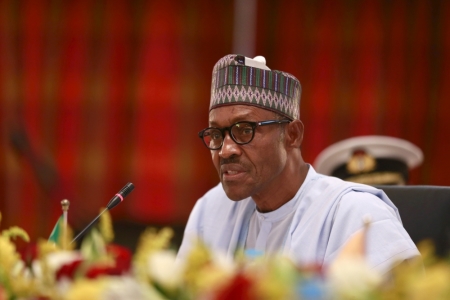
The event featured appearances from Save the Persecuted Christians Executive Director Dede Laugesen, Gloria Puldu of the Leah Foundation and Sudanese Christian activist Mariam Ibraheem.
Ibraheem was imprisoned in her home country for apostasy because she married a Christian American citizen and gave birth to one of her children while in captivity. She was sentenced to death in May 2014 but released a month later under a court order. She now resides in the U.S.
"As the body of Christ, we are one. When one [suffers], we all suffer," she told CP. "When we see injustice, we do what Jesus would do as a believer and a follower of Christ, and Jesus would take the side of the oppressed and the mistreated."
Save the Persecuted Christians describes itself as "an international coalition designed to raise awareness of the realities millions of Christians around the world are facing," while the Leah Foundation was set up to receive donations to secure the release of Leah Shabiru, a Nigerian girl kidnapped by Boko Haram nearly five years ago. Unlike the 109 classmates abducted alongside her, Shabiru remains captive because she has refused to renounce her Christian faith.
The work of the Leah Foundation also involves the application of "advocacy and pressure" to the release of "other girls in similar situations" and works to "provide for girls and women who have been affected by attacks or are in a form of captivity."
McDonnell and her fellow protesters called on the U.S. State Department to redesignate Nigeria as a "country of particular concern," a label attached to governments that have "engaged in or tolerated particularly severe violations of religious freedom."
Nigeria was added to the CPC list in 2020 under the Trump administration but was removed from the list in 2021 by the Biden State Department.
McDonnell believes that by extending an invitation to Buhari, the U.S. Institute of Peace acted as "the U.S. Institute of Appeasement."
McDonnell dismissed the idea perpetuated by the Nigerian government that the violence against Christians is the result of clashes between farmers and herders that is not related to religion as a "lie."
"One of our biggest goals is to confront that lie every time we hear it," she added. McDonnell said the Nigerian government has taken inadequate action to protect Christians in Nigeria.
"The soldiers and police watch while Christians are slaughtered," she claims.
Ibraheem criticized Nigeria's removal from the State Department's CPC list as a "slap in the face." She told CP she feels obligated to speak out about the treatment of Christians in Nigeria as a Sudanese Christian.
Puldu cited her solidarity with women and girls of Nigeria, especially Sharibu, as the reason behind her attendance at the protest.
She expressed outrage that while Buhari had "promised to rescue [Sharibu] from Boko Haram," he "has not done that."
McDonnell stated, "Leah was a schoolgirl at 14 when Boko Haram came and attacked her school." She noted that "all of them were Muslim except for Leah," adding that the Nigerian Christian remains imprisoned because "she [will] not renounce her faith in Jesus." While Sharibu's friends urged her to "pretend" to renounce her faith, she refused to do so.
Puldu urged the U.S. government to hold the Nigerian government "accountable for every dollar you give them in aid" because "Nigeria has enough money."
Emmanuel Ihim, a lawyer with the Washington, D.C.-based Diaspora Alliance, suggested that Buhari sees himself as "president of [the] Fulani caliphate," referring to the predominantly Muslim Fulani ethnic group as opposed to the leader of all of Nigeria. Ihim described the situation in Nigeria as a "genocide" and an "ethnic cleansing."
Stephen Enada of the International Committee on Nigeria, whose cousin was killed by Fulani in Benue state, offered similar concerns. He insists that "the U.S. government is playing the ostrich game" by welcoming a leader who has overseen "the genocide of his own people." He characterized the decision to allow Buhari to "come and talk" as "reprehensible."
International human rights lawyer Emmanuel Ogebe called for Buhari to face prosecution from the International Criminal Court, stressing that he "has no business being in the U.S. right now and giving lectures."
According to Ogebe, "it is hypocritical of the U.S. to deny the religious crisis in Nigeria" because "hundreds of diplomats are in hotels around D.C." after fleeing Nigeria due to a terrorist threat.
A report compiled by the International Society for Civil Liberties and the Rule of Law estimates that terrorists have killed more than 4,000 Christians in the first 10 months of 2022, while an additional 2,300 were abducted.
Ryan Foley is a reporter for The Christian Post. He can be reached at: ryan.foley@christianpost.com










